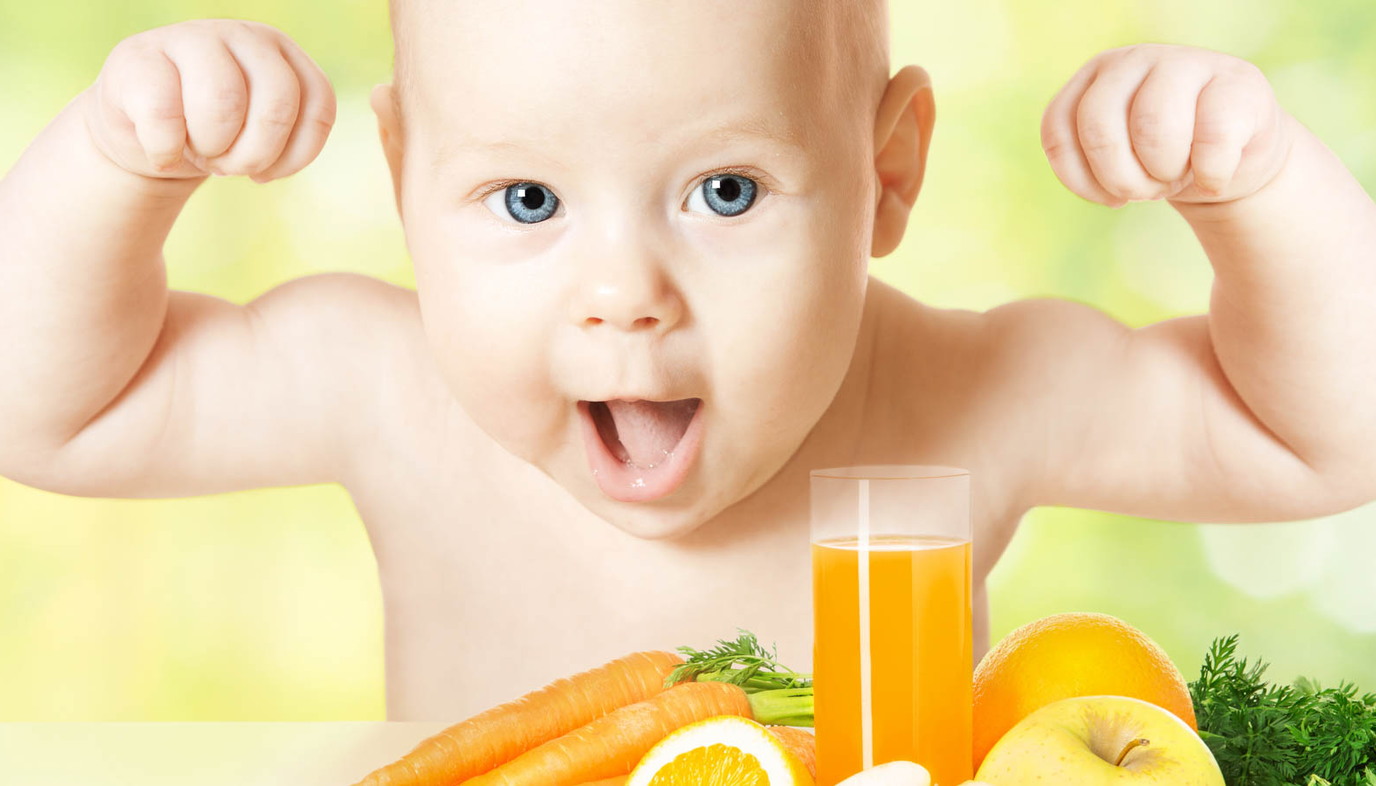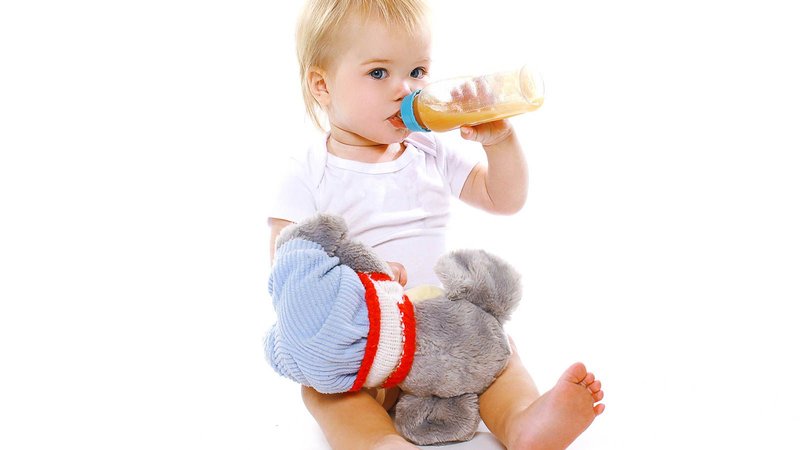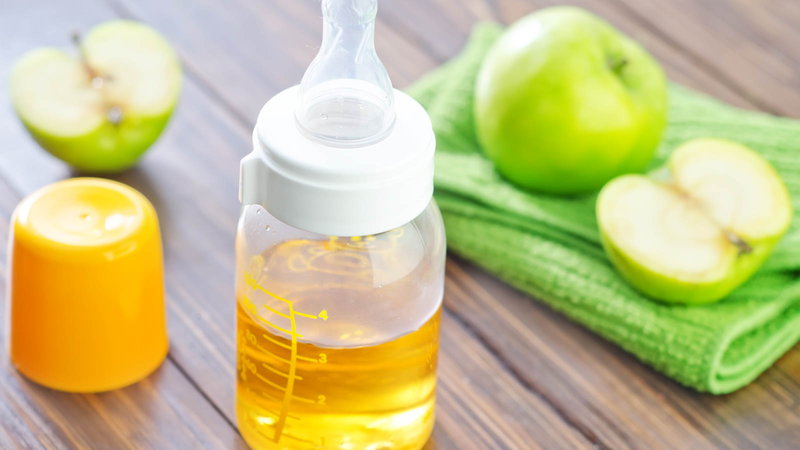
Babies don't have a nutritional need for juice. The American Academy of Pediatrics says that children under 6 months of age should never be given juice. Even when a baby is 6 months of age, there's still no need to give them juice. In some cases, it can actually cause health problems for the baby. If you still want to give your baby juice after 6 months, there are some guidelines you should follow.

100 Percent Juice vs. Juice Drinks
If you've decided to give your baby juice, you should read the nutritional labels carefully at the store to make sure that what you're buying is actually juice. Under FDA rules in the United States, the term "fruit juice" can only be used on a product if it is in fact 100 percent fruit juice with nothing added. If the product is labeled as a "juice cocktail" or "juice drink," it has additional ingredients like high fructose corn syrup and preservatives. These are products with a lot of extra sugars added to them, and they should not be given to your baby. "Nectar" is another term you'll see on labels, which means the juice has water and possibly additional sweeteners added to it.
How Much Juice Can My Baby Have?
Babies shouldn't be given more than half a cup of juice over the course of a day. You'll want to avoid giving your baby juice from a bottle or from a cup that they can suck on all day. This can lead to tooth decay and other problems. Monitor them when you give them juice, and make sure it's only a little bit at a time.

What Are the Risks?
Juice doesn't have much nutritional value aside from vitamin C. Your baby is growing extremely fast for the first year of his life and requires a lot of carbohydrates and proteins in order to do so. Just think of how fast your baby doubles in size from the time he's born. Even though your child can start on solid foods or juice at 6 months, science has repeatedly shown that there's nothing that can compare to breast milk. Juice contains a lot of sugar and empty calories that won't contribute to your baby's health.
The sugars in juice can cause your baby to have diarrhea and can lead to tooth decay. Babies can in fact grow more when they're given a lot of juice, but not in a nutritionally balanced way, with both fats and carbohydrates. Juice can lead to malnutrition, if your baby fills up on juice. He won't have enough room in his little stomach for balanced foods that are needed for proper nutrition. Juices are extremely sweet for babies, and they'll sometimes start to reject the breast if they develop a preference for juice.
If you are going to give your baby juice, buy only 100 percent juice for him. Mix it at least half with water, or you can buy the pre-diluted versions in the baby aisle at the grocery store. Don't give him juice before bed, because it can keep him (and you) up at night. You can also give your baby water or real fruit at 6 months as an alternative.
